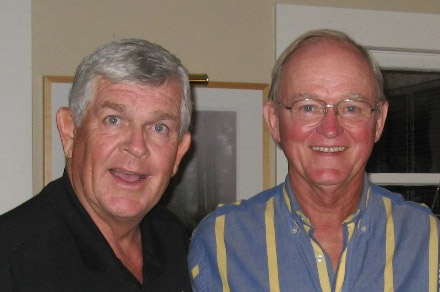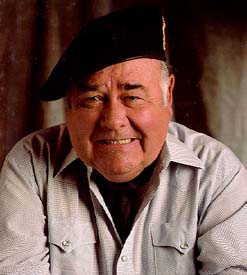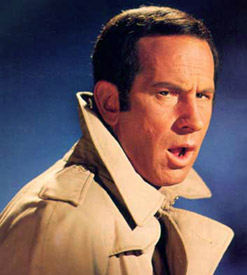Integrity Matters Broadcasts
July 31, 2007
Dear friends:
Below are more illustrations from our weekly Integrity Matters newspaper column.
Is there one key to success that does not compromise integrity?
No, there are several, but, let’s focus on one: the value of failures. The positive impact of failures rests solely with the individual who is able and willing to face disappointments, learning how to avoid repeating the same mistakes. Those who deny personal or organizational failure by passing the buck or rationalizing poor performance seldom improve results. Stuck in a cycle of self-congratulatory “voodoo” economics, they squander golden opportunities. Motivated and talented employees exit while they thrash-about until they run out of money or opportunity, or both. Success is not for the inattentive.
For alert individuals, eager to learn from potentially-devastating mistakes:
- Failure teaches humility – critical for working well with colleagues. Learning how to live with disappointment, one’s own and the short-comings of others, can pave the way for strengthening personal and organizational impact through supportive communications.
- Failure identifies flaws in any number of strategic business functions.
- Failure encourages listening to external counsel regarding more effective ways to:
- Plan
- Organize
- Staff
- Direct – and,
- Control
- Failure builds relationships with others who have faced their own disasters, having overcome adversities, to become even more effective (and successful) because of them.
Transforming failure into success was illustrated by my friend, The Rt. Reverend William E. Swing, retired Episcopal Bishop, San Francisco, California, during his Baccalaureate Address, at Stanford University, on June 16, 2007.

The Rt. Reverend William E. Swing at Stanford University

Jim Bracher and Bill Swing
Said, Bill Swing: Over a quarter of a century ago, I received an honorary doctorate from Kenyon College, my alma mater. Three people were invited to return to campus for a couple of days – to teach classes, meet students and faculties, and to receive hoods at an honors assembly. I was one. One of the leaders of the Peace Corps, Kevin O’Donnell was the second. And the third was Jonathan Winters, the comedian.
On the night before the big event, we were talking over dinner, and I said, ‘I don’t know about you guys, but I’m kind of embarrassed about walking up on that stage tomorrow. I wasn’t a good student. As a matter of fact, the faculty encouraged me not to return after my second year.’
O’Donnell chimed in, ‘I’m glad you said that. I only lasted one year at Kenyon.’
Then Jonathan Winters said, ‘I’m glad you guys said that. They kicked me out in February of my first year.’

Jonathan Winters
We looked at each other in wonder. Of all the students who were straight A’s in Math, or English, or Political Science, why did they invite three dummies to return? So we spent some time pondering that mystery. Why were we there? Actually we came up with two thoughts.
One! Isn’t it great to fail when you are 19-years old in front of your parents, peers and professors, and then discover that life goes on, that the sun comes up again, that there is much more ahead of you? Some people don’t conspicuously fail until they are 45 years old, and it devastates them. That’s what I want to tell you graduates. Fail early and get it all over with! If you learn to deal with failure, you can raise teenagers, you can abide in intimate relationships, and you can have a worthwhile career. You learn to breathe again when you embrace failure as a part of life, not as the determining moment of life.
There was a second learning that the three of us thought was worth knowing. We commented on how great to spend a lifetime working firsthand on one’s own passion, rather than working secondhand or third hand on somebody else's. Whether comedy, faith or youthful idealism - whatever, be an apprentice in something that beckons your heart to pursue with endless fascination. None of us was an expert in many things, but all three of us were passionate about one unique thing. My advice to you is to stay with things that draw you like a magnet. Trust your DNA. Pay attention to your daydreams.”
Failure becomes a stepping stone to success for those who are alert and receptive.
You recently criticized leaders, including elected officials, for not exhibiting civil behavior. What can be done to change the culture-wide slide into rudeness?
Look into the mirror and make sure appropriate behavior starts there. When mistakes are made, apologize immediately, and commit, yet again, to doing better. Some people say that we teach best what we most need to learn. Therefore, just about everyone can teach graciousness, since it is too frequently lacking, just about everywhere.
Several years ago, a friend published a book, “One Life at a Time: Making a World of Difference.” Ambassador Robert Seiple, formerly the CEO of World Vision, made the case that with millions of starving children, all over the globe, the place to start was one youngster at a time. His personal mission, and that of World Vision, was to “. . . assist 70 million people each year - to end poverty, fight hunger and transform lives.” Bob, along with those who have followed in his footsteps, know that change occurs – very personally – with individuals and their circumstances. As a consequence, his book illustrates how lives, are changed, one connection at a time.
And so it is with behavior. Rudeness and other forms of violence will be reduced, if not eradicated, one life and one interaction at a time.
When enough adults decide that our dysfunctional culture needs improvement, changes will likely be made only when the financial and emotional pain become intolerable. Until then, it is important to remind others and ourselves that positive values emerge when individuals walk the talk. Here are six recommendations:
- Be thoughtful - Time, words and opportunity - when squandered – are lost.
- Exercise self-control - Anger, pride and un-forgiveness destroy people.
- Represent constructive values - Hope, peace and honesty create effective individuals.
- Support others with attentive listening - Love of family and friends strengthens society.
- Humility is never out-of-style - Fortune, success and dreams can be uncertain.
- Do the right thing! - Commitment, sincerity and hard-work are hallmarks of integrity.
Don Adams, comedian-actor, starred in the weekly, short-lived Get Smart television program.

Don Adams as Maxwell Smart - Agent 86
There was little to commend the show except for a few one-liners that captured the attention of folks over the age of 45. More important than “missed it by that much” or “would you believe?” is his summary of the mission of CONTROL, the national security organization for which he worked. Maxwell Smart’s sole purpose was to end the nastiness of the adversarial and evil organization called KAOS – by replacing bad behaviors with “niceness.” Integrity, civility and “niceness” begin one person and one interaction at a time!
Please remember that we combine clarity, insight, intensity, sensitivity and follow-through with a wealth of experience, enabling listeners to gain practical solutions for their leadership concerns; on the job and in their private lives. Let us know if we might help you or those with whom you associate.
Sincerely,
Jim
James F. Bracher
Founder
Dimension Five Consultants, Inc.
Bracher Center for Integrity in Leadership
1400 Munras Avenue
Monterey, California 93940
831-373-0994 (fax)
www.brachercenter.com